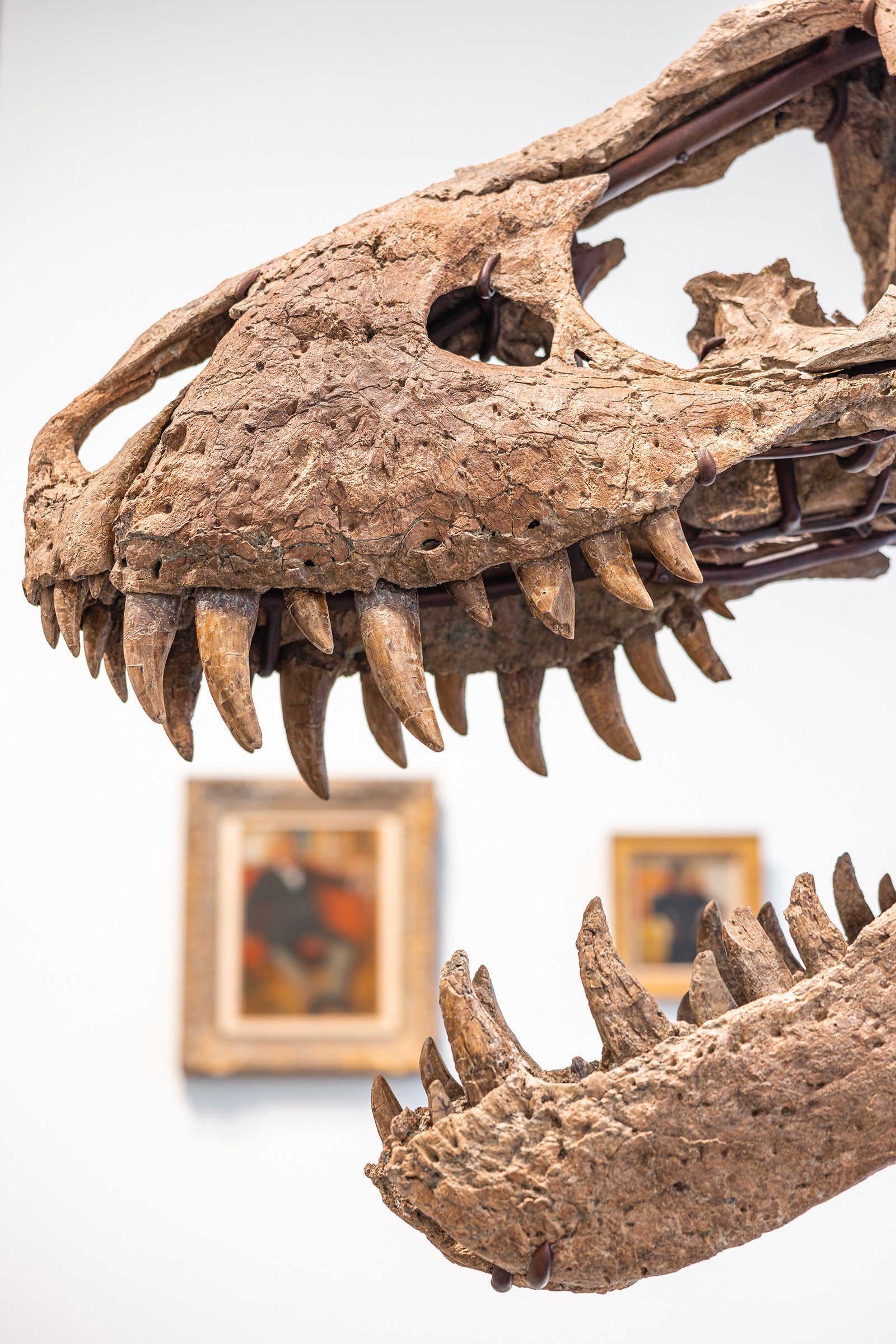T. rex skull could sell for $20 million at auction
(CNN) — A Tyrannosaurus rex skull is expected to fetch up to $20 million at auction next month, according to Sotheby’s.
The skull, which has been named Maximus, is one of the most complete of its kind ever found, the auction house said in a press release Tuesday, adding that it represents a “rare and important paleontological discovery.”
Weighing over 200 pounds and standing 6 feet and 7.5 inches (2 meters) tall, the colossal skull could become one of the most valuable fossils sold at auction when it is offered at a sale in New York.
Describing the fossil as “extremely rare,” the auction house’s global head of science and popular culture, Cassandra Hatton, said in a statement that the sale was an “unprecedented moment.”
Maximus was discovered on private land in the extensively studied Hell Creek Formation in South Dakota. The skull belonged to an adult dinosaur, and all its “tooth-bearing jaw elements” have been preserved along with most of its external bones. The rest of the skeleton was largely destroyed by erosion, as the excavation site had been severely weathered over time, the auction house said.
“This T. rex fossil is an extraordinary discovery,” said Henry Galiano, a Sotheby’s natural history consultant, in a press statement. “Unearthed in one of the most concentrated areas for T. rex remains, the skull retained much of its original shape and surface characteristics with even the smallest and most delicate bones intact, with an extremely high degree of scientific integrity.
“Without the work of experienced field palaeontologists who carefully collected and preserved this skull, it may have eroded away and been lost to science forever,” he added.
Fossil auction controversy
Last month marked 25 years since a T. rex nicknamed Sue became the first dinosaur ever to be auctioned, which sold the fossil for $8.36 million. Described by Hutton as “the largest and most complete T. rex ever discovered,” Sue was also found at the Hell Creek Formation, which has yielded more T. rex remains than any other location in the world, according to Sotheby’s.
The 1997 sale was met with controversy, however, with some experts concerned that specimens in private collections would become unavailable for scientific study. Paleontologists have also argued that the growth of the collectors’ market makes it harder for them to carry out excavation work on private land.
“In many areas where dinosaur fossils are found, it is becoming more difficult for professional paleontologists to obtain permission to collect fossils on private property because of the commercial value of fossils,” wrote paleontologist John W. Hoganson in a 1998 edition of the North Dakota Geological Survey’s newsletter.
It is a debate that has surrounded large fossil auctions ever since. Earlier this year, Sotheby’s sold the skeleton of a Gorgosaurus, a relative of the T. rex, for just over $6 million, prompting fresh concerns among experts. It was the only fossil of its kind ever to be offered for private ownership, with the other known specimens all housed in museum collections.
“In my own opinion, there are only cons,” P. David Polly, a professor and chair of the department of earth and atmospheric sciences at Indiana University Bloomington, told CNN at the time of the Gorgosaurus sale. “While certainly there is no law in the US that supports this for fossils that come off private land, it’s easy for me as a scientist to argue that that fossil is important to all of us, and really ought to be going into a public repository where it can be studied — where the public at large can learn from it and enjoy it.”



